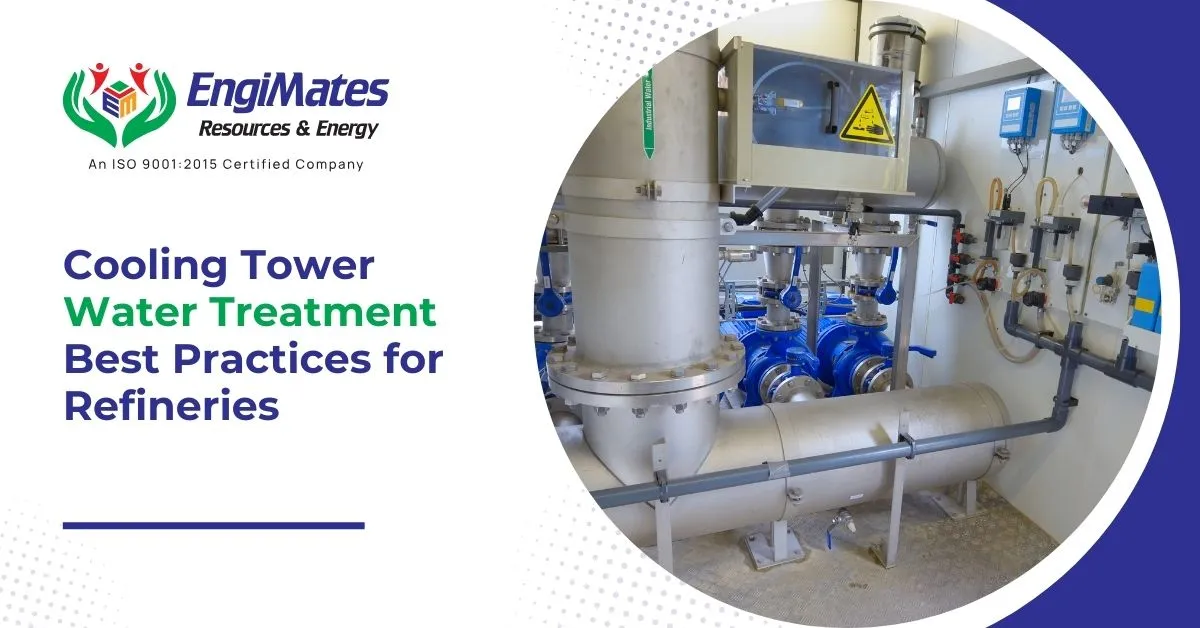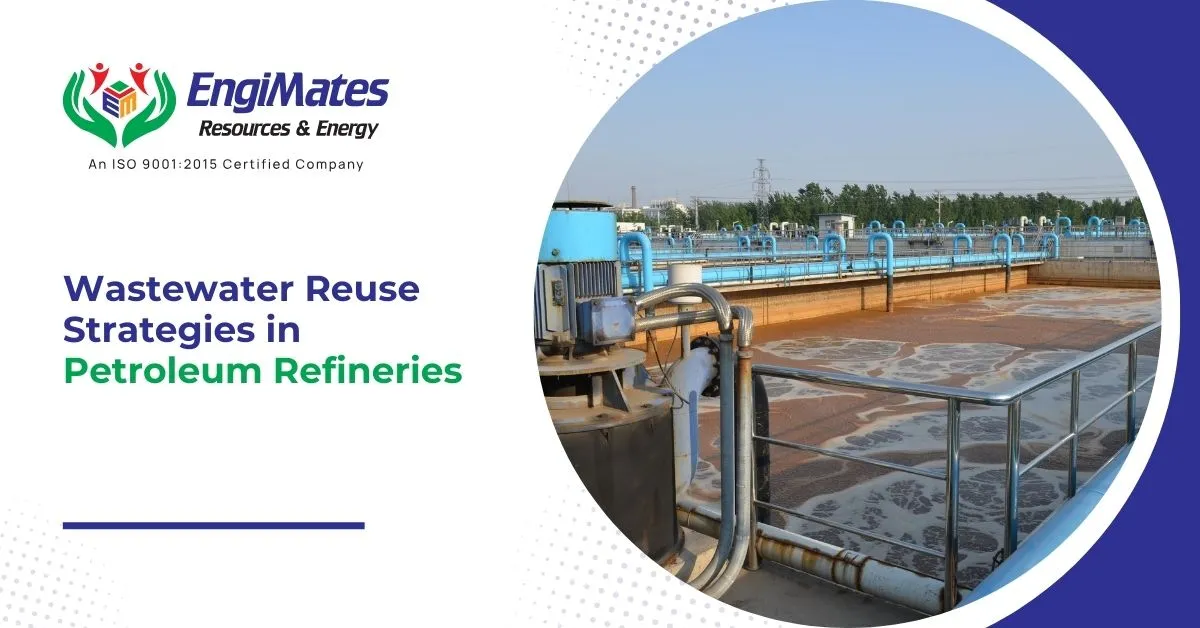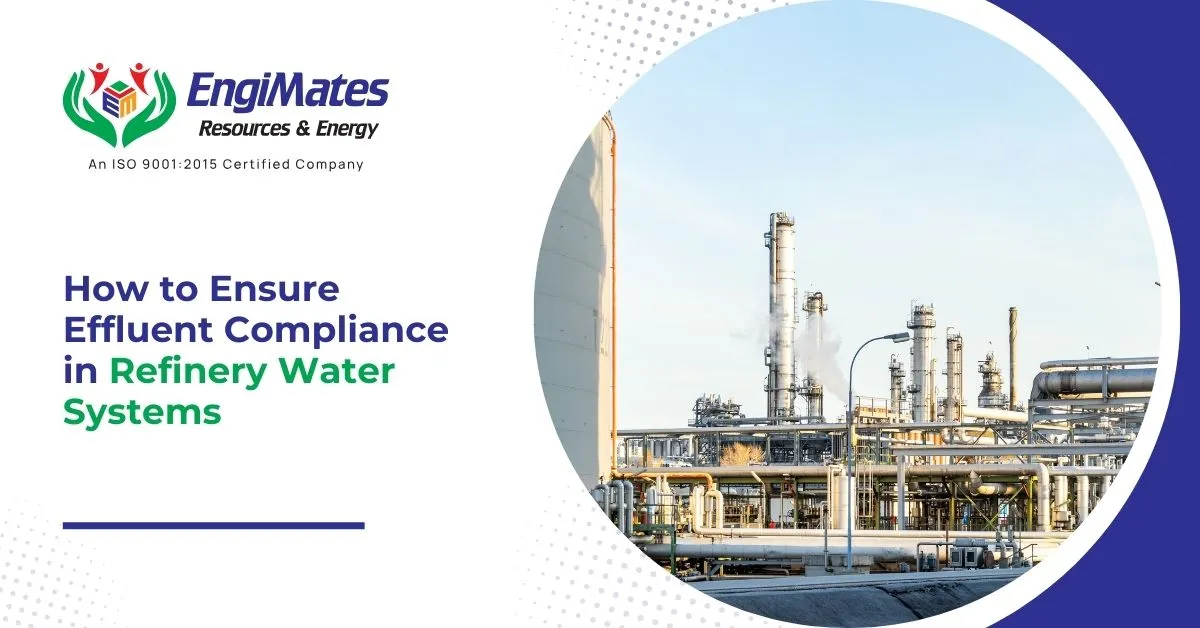Petroleum refineries are among the most water-intensive industrial facilities, consuming large volumes for cooling, crude…

Cooling towers are vital in refinery operations, ensuring efficient heat rejection, stable process performance, and longer equipment life. However, poor water treatment practices can lead to scaling, corrosion, biological growth, and operational inefficiencies. Implementing best practices in cooling tower water treatment helps refineries reduce costs, conserve resources, and ensure environmental compliance.
Table of Contents
Why Cooling Tower Water Treatment Matters in Refineries?
Refineries rely on cooling towers to maintain stable operating conditions. Untreated or poorly treated water can cause:
- Scale buildup that reduces heat transfer efficiency.
- Corrosion, damaging critical equipment and pipelines.
- Microbiological growth, such as algae or biofilms, that reduce efficiency.
- Excessive water consumption due to poor cycles of concentration.
By adopting proven water treatment strategies, refineries can improve performance, reduce downtime, and extend the lifespan of assets.
Best Practices for Cooling Tower Water Treatment
Water Quality Monitoring and Control
Continuous monitoring of water chemistry (pH, conductivity, hardness, chlorides) ensures proper balance and prevents corrosion and scaling. Smart sensors and automation systems provide real-time adjustments.
Scale and Corrosion Inhibitors
Chemical dosing with inhibitors prevents scaling and corrosion in cooling tower systems. These extend asset life and reduce maintenance costs.
Biological Control
Biocide dosing and advanced disinfection technologies like UV or ozone help control algae, fungi, and bacteria growth in cooling towers.
Blowdown Optimization and Water Reuse
Blowdown is essential for removing dissolved solids. Optimizing blowdown and reusing treated water reduces freshwater demand and improves sustainability.
Looking to optimize cooling tower performance in your refinery? Contact us for expert water treatment and sustainable engineering solutions.
Use of Advanced Filtration and Treatment Technologies
Refineries increasingly use membrane filtration, softening, and reverse osmosis for cooling tower makeup water treatment, improving quality and reducing risks.
Benefits of Adopting Best Practices
- Improved operational efficiency and heat transfer.
- Extended cooling tower and equipment life.
- Reduced unplanned downtime and maintenance costs.
- Lower water and energy consumption.
- Compliance with environmental and safety regulations.
Frequently Asked Questions
Why is cooling tower water treatment important in refineries?
Cooling tower water treatment prevents scaling, corrosion, and biological growth, ensuring efficient refinery operations and regulatory compliance.
What are the best practices for refinery cooling tower treatment?
Best practices include water quality monitoring, chemical dosing, biological control, optimized blowdown, water reuse, and advanced filtration systems.
How can refineries reduce water consumption in cooling towers?
Refineries can optimize blowdown; reuse treated wastewater and implement membrane filtration technologies to conserve freshwater.
What challenges occur in untreated cooling tower systems?
Untreated systems face scale buildup, corrosion, biofouling, reduced efficiency, and increased downtime, leading to higher costs and safety risks.
How does EngiMates support cooling tower water treatment projects?
EngiMates provides Process Simulation, Dynamic Simulations, Asset Management, and Design & Engineering services to design and maintain efficient water systems.
Conclusion
Effective cooling tower water treatment is critical for refinery sustainability and operational excellence. By combining advanced technologies with EngiMates’ expertise in Process Simulation, Dynamic Simulations, Asset Management, and Design & Engineering, refineries can maximize efficiency while ensuring regulatory compliance.



